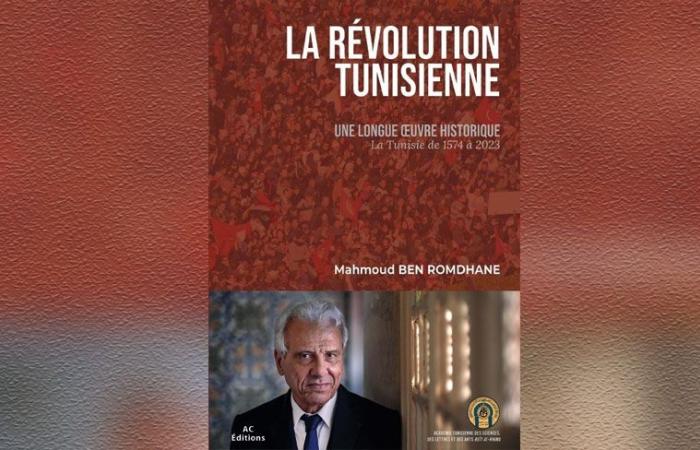« The Tunisian Revolution. A long historical work. Tunisia from 1574 to 2023 », the new book by Mahmoud Ben Romdhane, has just been published by AC éditions.
Mahmoud Ben Romdhane, president of the Tunisian Academy of Sciences, Letters and Arts, Beït al-Hikma, will sign his book on November 15, 2024, during a presentation session moderated by Abdelhamid Henia, member of Beït al-Hikma and head of the department of humanities and social sciences.
The subject of this book, we read on the back cover, is the Tunisian Revolution, the first and, so far, last democratic revolution of the 21st century on a universal scale, at a time when democracy is confronted with a systematic decline for almost two decades.
A “great revolution”, which triggered a series of insurrections in the Arab world, which quickly fell apart due to lack of prior historical work.
The approach followed is of Tocquevillian inspiration, considering that the Revolution can only be understood in and through historical continuity and that it is, in the words of our author, only “the complement of the longest work, the termination suddenness of a work on which ten generations of men had worked.
This essay, as presented by the author, who admits not having written a “ history book “, has the subtitle Tunisia from 1574 to 2023 because it studies the historical process which brings about the passage of the inhabitants of this country, dominated by a foreign power, reduced to the status of subjects, divided into a mosaic of communities in fight against each other, subject to a traditional and patriarchal society; to that of individuals constituted as a sovereign Nation-State; actors, authors of their lives, free citizens.
The Tunisian Revolution is thus presented as the study of the progressive realization of these institutional constructions until the event of the current Revolution and the entry of Tunisia into a highly eventful democratic era, the outcome of which is still uncertain.
The work is structured around three historical parts, a first which extends from 1574 to 1956, during which Tunisia is confined to the status of province of an empire, a second which extends from independence to revolution during which the sovereign and secular nation-state emerges and a third which extends from 2011 to 2023-4 which corresponds to the end of the party-state system and the police state.
Mahmoud Ben Romdhane is a university professor of economics. Former global president of Amnesty International, he is a founding member and former president of the Tunisian section of the organization.
Former Minister of Transport, former Minister of Social Affairs in the first government of the Second Republic, he is also the author of numerous works including “ Tunisia – Democracy in search of a State, Or how to get back on the path to shared prosperity » (Sud Editions, Tunisia, May 2018 340 pages) and « Tunisia: State, economy and society: Political resources, legitimation and social regulations » (Editions publisud France, February 2011, 282 pages).
M.B.Z






